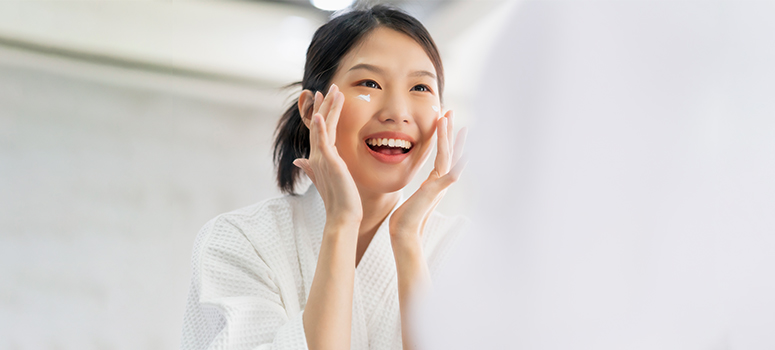Many of us believe that after a tiring day, all you need to do is rest; when you wake up the next day, your skin issues will magically disappear. Your skin needs a good rest time to rejuvenate. And what time other than the night for your skin to heal from the damage it suffered all day? You might have a nighttime skincare routine, but does that include slugging?
You might wonder what slugging is and whether this process can work for your skin. Let us look at some information on slugging and how it can help your skin remain young and healthy.
What is slugging?
Slugging, a part of the Korean Skincare regimen is said to be a part of a 3 in one skincare regime or 3-step program. The concept of slugging skincare is inspired by how slugs get rid of dead skin cells – they simply rub their bodies together. This form of facial treatment involves applying a thin layer of moisturiser to your face and letting it sit for several minutes before wiping it off with a warm washcloth or towel. The idea is that the moisturiser will hydrate your skin better than using it alone would, which can help improve its texture, elasticity and overall appearance over time.
What are the benefits of slugging?
Slugging is a relatively new skincare trend that has garnered much attention in recent years. Here are some benefits of slugging you should know about:
-
- Slugging is a great way to exfoliate your skin. The gentle rubbing removes dead skin cells and unclogs pores, leaving your complexion radiant.
- Slugging adds to the shelf life of your products. The ingredients in your product will be able to penetrate deeper into your skin as they are not exposed to air and light. This makes them last longer than normal usage would allow.
- It can improve skin tone, reduce scars and improve skin texture. It has also been effective in treating acne, rosacea, freckles and pigmented spots on the face and body.
- Slugging encourages new collagen growth and helps repair existing collagen damage caused by sun exposure or ageing.
- Slugging creates micro-trauma in your skin, prompting it to release a slew of valuable chemicals, including growth factors that help combat ageing effects like wrinkles and sagging skin.
- It increases the cell turnover rate. The more frequent cell turnover, the less likely you are to get wrinkles or age spots because fewer old cells will hang around for a long time before they die off naturally.
Who should try slugging?
The best part about slugging is that it’s a reasonable practice that requires no special equipment or expertise. You can easily do it at home or work if you want to give your face a treat at break time!
Slugging is also a good option if you want to improve your complexion in general or if you want to reduce any redness that you may be experiencing due to acne scarring or other issues. If you suffer from clogged pores or enlarged pores that are causing blemishes, slugging may help improve their appearance by making them less noticeable.
Slugging works best on people with darker skin tones because darker skin absorbs more heat than lighter skin. This means darker skin will heal faster, and less scarring should occur compared to more delicate skin types.
Who should avoid slugging?
Though slugging might look like the ultimate skincare routine that will eliminate all your worries, it may work differently for some. It is essential to know if it will work for you. Here are some cases where slugging won’t be as effective:
People with dry skin – Slugging can be very harsh on your skin if you don’t know what you’re doing. If you have dry skin, slugging could further damage your skin and cause more harm than good.
People with acne-prone skin – Slugging can cause infection in acne-prone skin and make matters worse for those who already suffer from severe acne breakouts.
People who have sensitive skin – If you have sensitive skin, then slugging may not be the best option for you as the process could irritate or inflame your skin even more than it already is.
If slugging is not something you can add to your skincare routine, you can look for alternatives. Seeking help from your dermatologist on getting healthy and glowy skin is the best way forward.
Is slugging for you? Ask the experts!
Giving slugging a try won’t do any significant harm, but it can cause unwanted breakouts, further adding to your discomfort. It is always better to ask your dermatologist before going ahead with slugging. To connect with top dermatologists near you and read more about skincare and skin issues like this one, visit the skin and hair academy.














